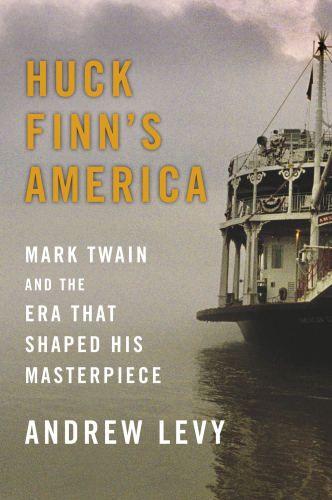
Been There Before
What Mark Twain and Huck Finn Really Teach Us About Race, Children, and America
کتاب های مرتبط
- اطلاعات
- نقد و بررسی
- دیدگاه کاربران
نقد و بررسی

November 3, 2014
Despite its status as a durable American classic that’s constantly placed on (and removed from) high school reading lists, Adventures of Huckleberry Finn is consistently misunderstood and misread, says Butler University English professor Levy (Brain Wider Than the Sky). He teases out Twain’s intentions by contextualizing the months leading up to Huckleberry Finn’s U.S. publication in 1885, when Twain embarked on a tour to drum up sales. Though Twain’s novel is both celebrated and censored for its treatment of race, Levy argues that not only do we misinterpret what Twain had to say about race but we emphasize race at the expense of the book’s equally controversial treatment of childhood and 19th-century anxieties about youth violence. Ironically, Levy’s analysis of Twain’s racial politics is more captivating than what he has to say about Twain’s views on childhood. By reading the complex and shifting semiotics of the minstrel show onto Twain’s novel, Levy gives readers a sense of Twain’s mercurial politics—simultaneously progressive and retrograde. Levy argues that “mistaking a dark comedy about how history goes round for a parable about how it goes forward is a classic American mistake,” one that tells us more about ourselves than about Twain or his novel. Agent: Lydia Wills, Lydia Wills LLC.

December 1, 2014
Levy's (dept. chair, English, Butler Univ.; A Brain Wider Than the Sky; The First Emancipator) third book is his first to address American literature. In it, the author investigates the circumstances and times surrounding the creation of an American classic and submits that without understanding Mark Twain and the sociopolitical climate of his era Huckleberry Finn is misunderstood as a children's story or as a serious piece regarding race in the United States. When Twain's influences and the time period is superimposed over the novel, however, it can be seen that the book was never intended to exist as a stand-alone work, designed to be performed in a minstrel show, and more about black people's involvement in industry and a commentary on entertainment than civil rights. Extremely well researched with over 120 pages of references and notes, Levy's study makes a compelling argument that once "seen can't be unseen" when understanding Huckleberry Finn. Particularly compelling is Twain's friendship and collaboration with entertainer George W. Cable, who assisted in bringing the author's book to the stage, offering sound evidence of the novel's intended nature. VERDICT An important new opinion to be considered in any serious discussion of not only Huck Finn but of Twain and the topic of race. Recommended for readers of Twain, African American history, and biography and scholars of American history, American literature, and theater history. [See Prepub Alert, 7/21/14.]--Benjamin Brudner, Curry Coll. Lib., Milton, MA
Copyright 2014 Library Journal, LLC Used with permission.

























دیدگاه کاربران